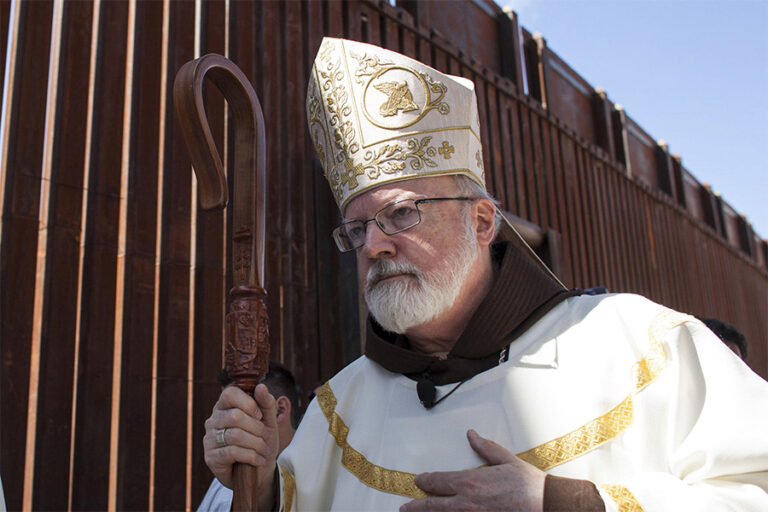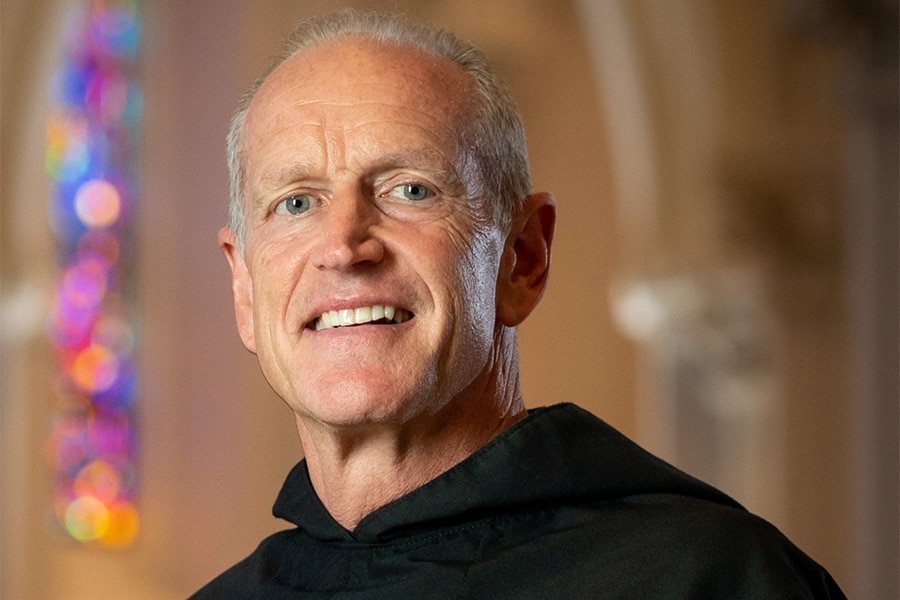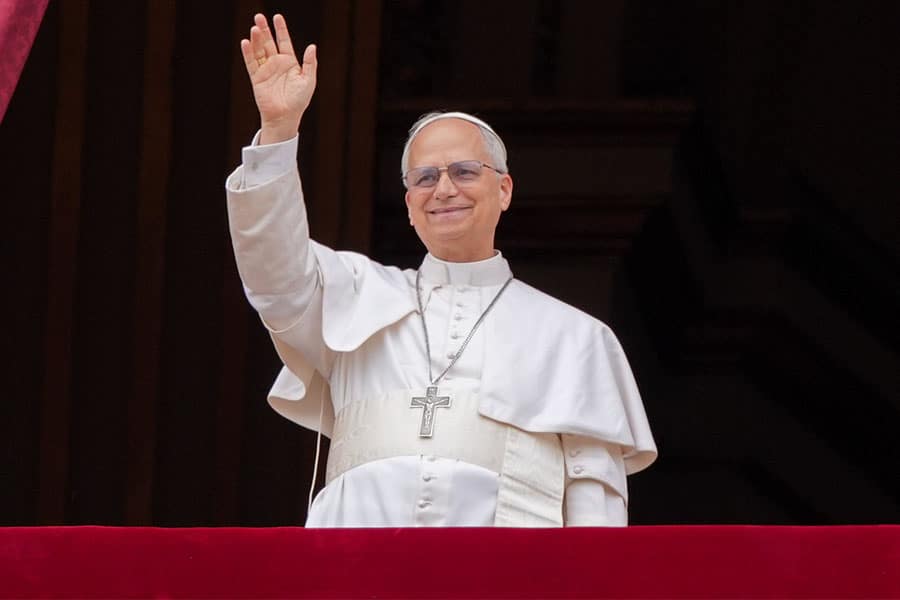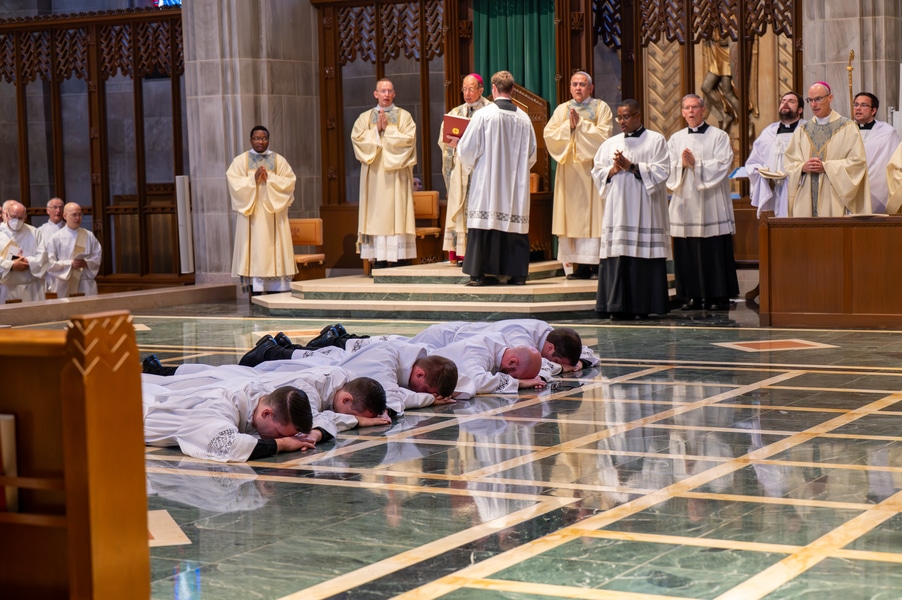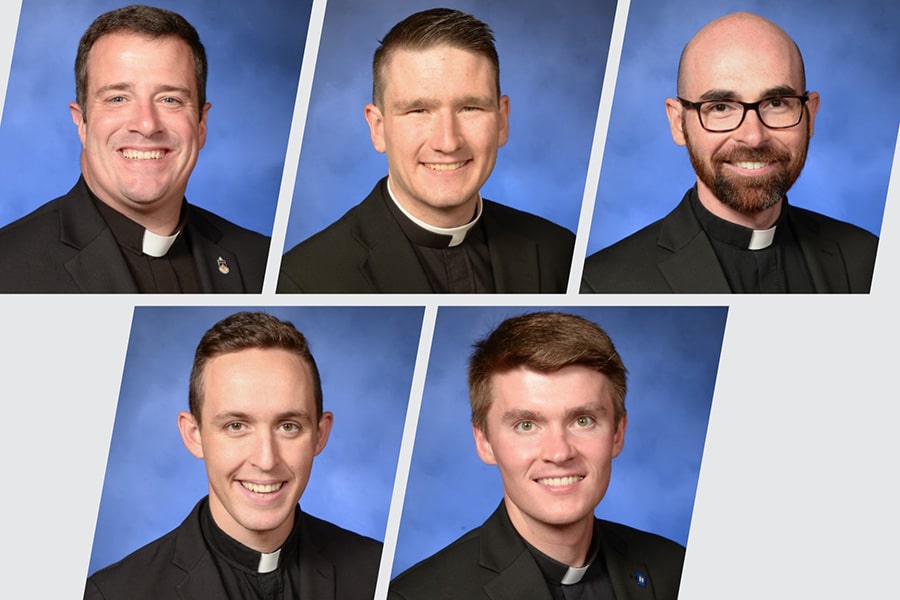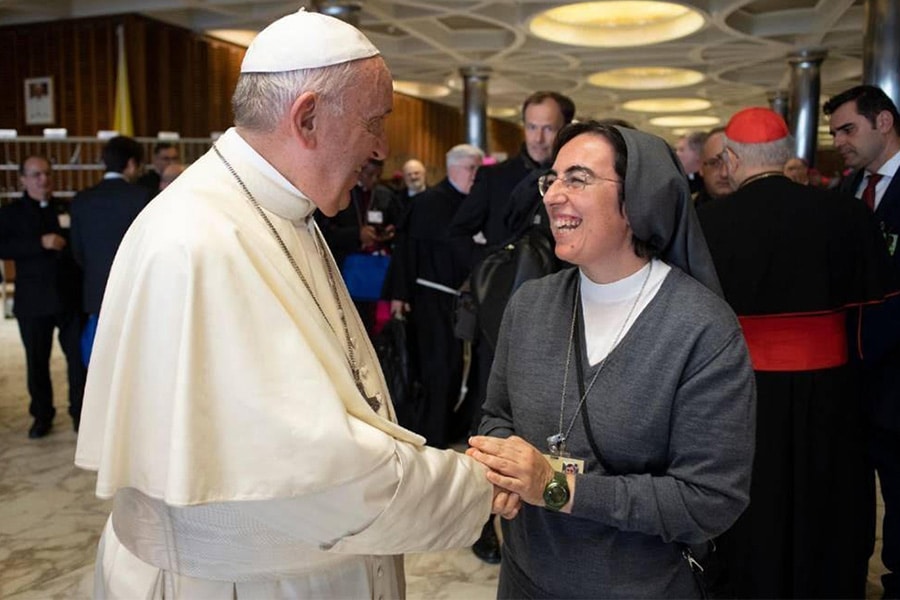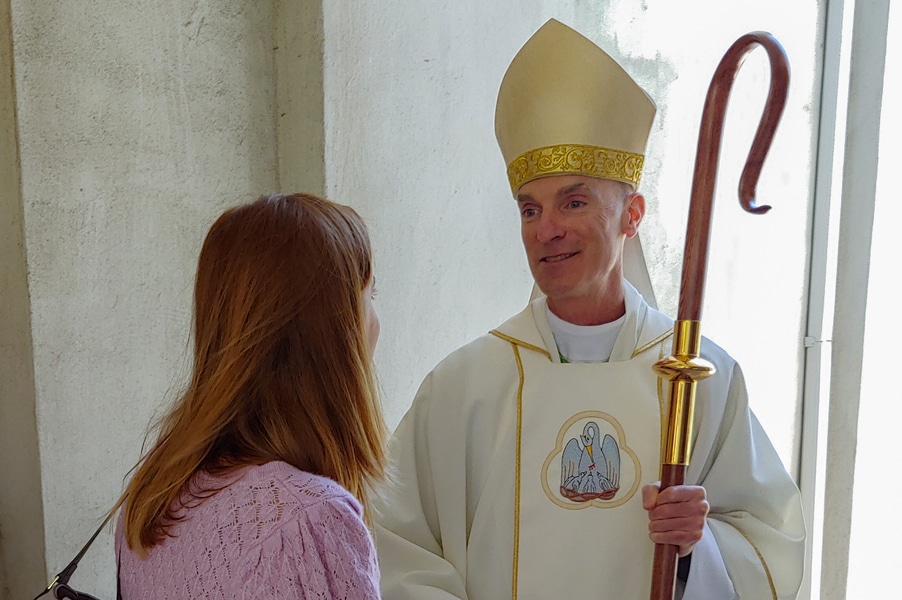After he turned 80 at the end of June, Cardinal Seán P. O’Malley’s retirement as archbishop of Boston was accepted by Pope Francis on Aug. 5 of this year.
Cardinal O’Malley, who was ordained a priest in the Order of Friars Minor Capuchin on Aug. 29, 1970, at the age of 26, has been a key figure at the highest levels of church governance in helping oversee reforms in the wake of the clergy sexual abuse crisis. In his 40 years as a diocesan bishop, not only did he oversee several dioceses plagued by the clergy sexual abuse scandal, but he has also contributed globally since 2014 when he was appointed founding president of the Holy See’s Pontifical Commission for the Protection of Minors.
Following the appointment of Archbishop Richard G. Henning to Boston, Cardinal O’Malley now is free from the day-to-day governance of a diocese. However, he remains on the Council of Cardinals and continues leading the pontifical commission on safeguarding until the pope names a successor.
OSV News had an opportunity to sit down with Cardinal O’Malley during the U.S. bishops’ November plenary in Baltimore — his first conference meeting since his retirement. This interview is edited for length and clarity.
OSV News: Your Eminence, you reached retirement age five years ago. But now, at 80, you have a successor in place in Boston, where you served for 21 years. What do you hope the people there will remember about you when you’re gone?
Cardinal Malley: Well, I just hope that they will remember that I love them and I’m grateful for all of their help and patience with me and their prayers. It was a privilege to be their bishop.

OSV News: When you arrived in Boston, the local church was reeling from the Spotlight era. You had experiences already dealing with this very problematic issue (of clergy sexual abuse). But how did the Boston experience shape your future work in safeguarding?
Cardinal O’Malley: Well, it was my fourth diocese. Three of the dioceses had very serious problems of sexual abuse, and all of the pain and the suffering that had been generated by years of neglect and coverup and not dealing with the problems.
As difficult as it was very early on, I realized that the church’s mission is to make present the merciful face of God in the presence of all the suffering. And that if we don’t do that, then nothing else we do will have meaning. And people will not believe us, if they are not convinced that the children’s safety is of paramount importance to us. And so as difficult and as painful as this was, there was never any doubt in my mind as to how important this ministry is for the church.
The media did us a great service by forcing us to deal with the problem. Unfortunately, they did not contextualize the problem for people, so people have the impression that this is a church (problem) where it’s a human problem. But in the church, it takes on different dimensions. Because if we are not coherent in living the love of God and the Commandments, we become a scandal to people rather than a witness of the faith and God’s love.
OSV News: In the midst of all of that, what nourished and strengthened your faith? I’m sure there had to be dark days.
Cardinal O’Malley: I think that the prayers and help of so many faithful priests, religious, deacons, lay people, who stayed with the church at a time when the temptation to step away in disgust and discouragement and embarrassment was very, very great. There were so many people who stayed with us, and that was a great source of strength to me in those very dark times.
OSV News: Since his election, you’ve been a trusted adviser of Pope Francis. What have you learned from the experience of being so intimately involved with his governance? And how do you respond to those who might struggle with his pontificate?
Cardinal O’Malley: Well, I think that we have to be convinced — and I think the Holy Father’s emphasis on synodality is part of the same message — that the Holy Spirit is guiding the church. Every pope comes and brings different gifts, different lights to our church. I’m old enough now, at 80 years, to have lived with many different popes. And each one of them has brought different gifts to the church, as has Pope Francis. But we’re very grateful for his commitment to safeguarding, his sensitivity to those who are suffering, those who are on the margins, those who feel rejected by the church. And, of course, as a Franciscan myself, I am energized by his embrace of the ideals of St. Francis to be a universal brother and to have that devotion to the suffering Christ, and discover him in the leper, in the sick, the suffering, the rejected. So it’s been a privilege to work closely with the Holy Father during these years. And, of course, the Commission for the Protection of Minors and Vulnerable People has been a great challenge, but also an opportunity to work with extraordinary people who are so committed in this area and committed to the church. I don’t think there’s any other Commission in the Holy See — which is made up basically of volunteers from all over the world — who give so much time to the work and bring so much passion and so much desire to bring healing, and to create safe environments in our church, and to educate our Catholic people and our leadership as to the importance of safeguarding in our church and in society.
OSV News: As a Franciscan you have been able to bring your charism to your local church to the universal church in various ways. How has that charism helped you to navigate the challenges in the church locally or universally?
Cardinal O’Malley: There are so many things in the life of Francis: first of all, his great love for the church, his sense of mission. His goal was to rebuild the church. He saw the church in a great moment of crisis and he loved the church and saw, in the church, Christ. So it’s a privilege to be able to be a part of that mission.

We are called to be universal brothers. Brothers, especially to those who are suffering, those who the Holy Father says are on the margins, on the periphery. The lame, the blind, and the halt, the tax collectors and the prostitutes are the protagonists in Christ’s Gospel. And the church must continue that same Gospel and see that our mission is to carry the light of Christ to a world where there’s darkness. This is certainly a very Franciscan theme. And to bring peace in a world where there’s so much division. Francis went and met with the sultan. If we had followed the path of Francis, rather than the Crusades, our present world may not be so conflicted.
OSV News: The late Cardinal Francis George once said that God raises up saints in times of crisis, as Francis of Assisi had been, and said it was the task of the bishop to look for them and encourage them. Many would say we’re in a time of crisis today, too. Where do you see the saints in our time?
Cardinal O’Malley: I think there are a lot of saints out there. They’re what keeps the church going. The Holy Father talks about the saints next door. We tend to glamorize the saints, but it’s the fidelity of the little people whose prayer, goodness and love is what is making the difference.
It’s like that wonderful dialogue where we’d say to God, “Well, will you spare the city if there’s 10 honest people?” We have those saints who are interceding for us and keeping us all going.
OSV News: You spent a long time serving the Hispanic population in Washington, D.C. Could you share a bit about that experience?
Cardinal O’Malley: Yes, I was in Washington for my entire priesthood. When I was a young friar, I was supposed to go to the missions on Easter Island. But the archbishop called the provincial and said, “I only have one priest who speaks Spanish, leave that brother here.” So my life was changed. And I ended up spending my entire priesthood working with, basically, refugees coming from Central America during the times of wars in El Salvador, Nicaragua, Guatemala, Honduras. People were pouring into Washington in those days from those areas. It was the honeymoon of my priesthood. As I say: I didn’t say Mass in English until I became a bishop.
OSV News: With Hispanic ministry as such a significant aspect of your legacy, what was it from that whole experience that you think the church could learn from, in how we could be more attentive and better in serving those on the margins?
Cardinal O’Malley: Well, I just see what has happened in my lifetime. When I arrived at the Centro Católico, the archdiocese had one priest who spoke Spanish. Last year, I went when they ordained two auxiliary bishops who were Hispanic priests of the archdiocese. Now Hispanic Catholics are probably the majority of Catholics in the archdiocese.
The immigrant populations are transforming the church, and we must be aware of that and be a welcoming church. So many bishops will tell me that in their dioceses: the youth, the families, the energy are in the immigrant parishes. We have always been an immigrant church. As I say, Europe would love to have our problems. The children of our immigrants will be Americans. We have a capacity for assimilation of people that no other country has. The church needs to be on the front lines.
OSV News: Another major aspect of your legacy, aside from reforms in Boston, has been your work as president of the pontifical commission advocating for protection of young and vulnerable persons. How would you say you have been able to use your voice for the good and affect change at the highest levels?
Cardinal O’Malley: The commission has given us the opportunity to speak with, particularly, the leadership in the church. So often we’re involved in the training sessions for new bishops, what we call the Montessori for bishops. I’ve done those a number of times. And I always take victims (of clergy abuse) with me, because it’s very important for a bishop to hear the pain and the witness of the victims, and for bishops to understand just how difficult it is for people to come forward if they have been abused in the church. I tell the bishops: When I became a bishop 40 years ago, we didn’t have any Montessori for bishops, there weren’t any classes of them. But if we had been able to hear about safeguarding, if we had been able to hear the witness of a victim, I think the history of our church would be different today.
So it’s very important for our leadership to have the opportunity to listen to those who have suffered and their families. I think in the past, a lot of our bad response was because people were so oblivious to the suffering and the evil that was caused by this abuse.
Whenever there are ad limina visits, we meet with the bishops in Rome. We work with them on policies. We have been able to get funds to give grants to many of the mission countries that don’t have safeguarding programs, to be able to set one up and to train people.
The commission has done so much to help the Holy Father promote safeguarding in the whole church, and particularly in the Global South where the church is only beginning to deal with the challenges around safeguarding.
OSV News: In your 40 years as a bishop, what would you say has been your biggest challenge in those years?
Cardinal O’Malley: I always say I would have studied harder in the seminary if I had known.
My first diocese was almost destroyed by a hurricane. But looking back, after the sexual abuse crisis, I always say give me a good hurricane any day.
Certainly, the challenges of trying to pass on the faith to a new generation, to inspire people to embrace a vocation — whether that be to married life or to consecrated life or the priesthood — I’ve always seen that as a very important part of the mission of a bishop. I feel privileged to have been able to marry and ordain so many people. When I left Washington, they called me from the marriage bureau and said no other priest in the history of the District of Columbia has (witnessed) as many marriages as you. In my time just in Boston, I’ve ordained 140 priests. That’s a great joy and a consolation.
OSV News: One day you’ll give the Lord an accounting for your life. What will you say tops the list of what you’ve done to serve him most?
Cardinal O’Malley: To me, being a Capuchin friar has been the great joy of my life.
OSV News: As you enter retirement, it sounds like you’re not going to be all that retired.
Cardinal O’Malley: No, I’m kind of worried. I think I’ll be busier than I was before. As long as God gives me health, I’m happy to do whatever I can.
Read More Vocations
Copyright © 2024 OSV News

